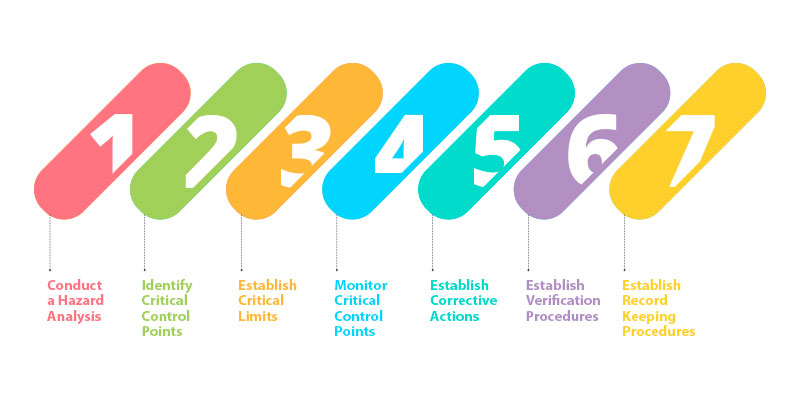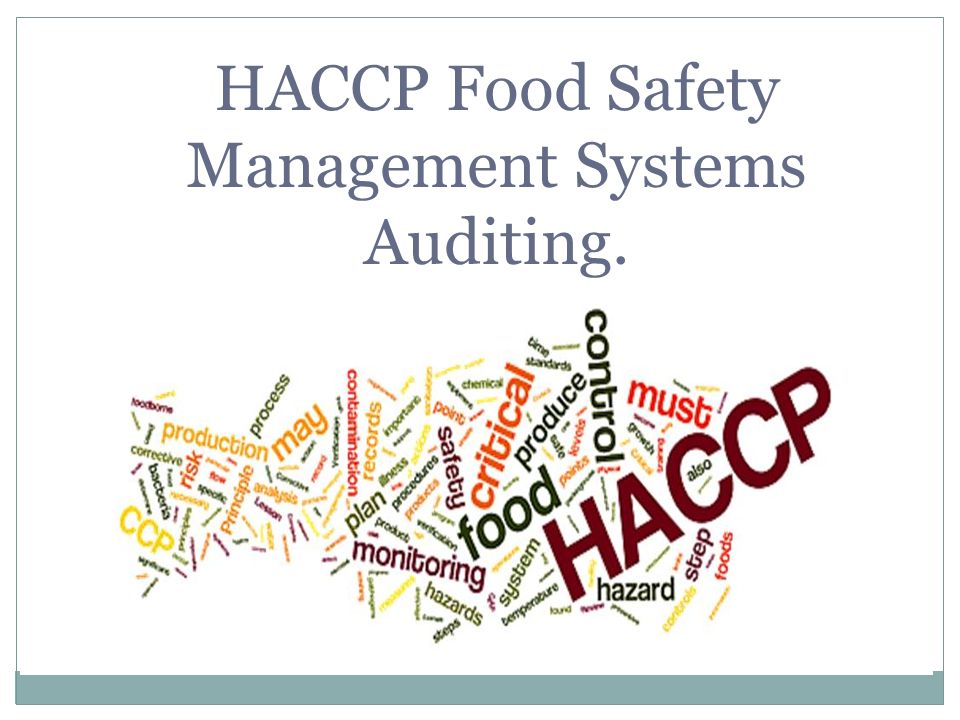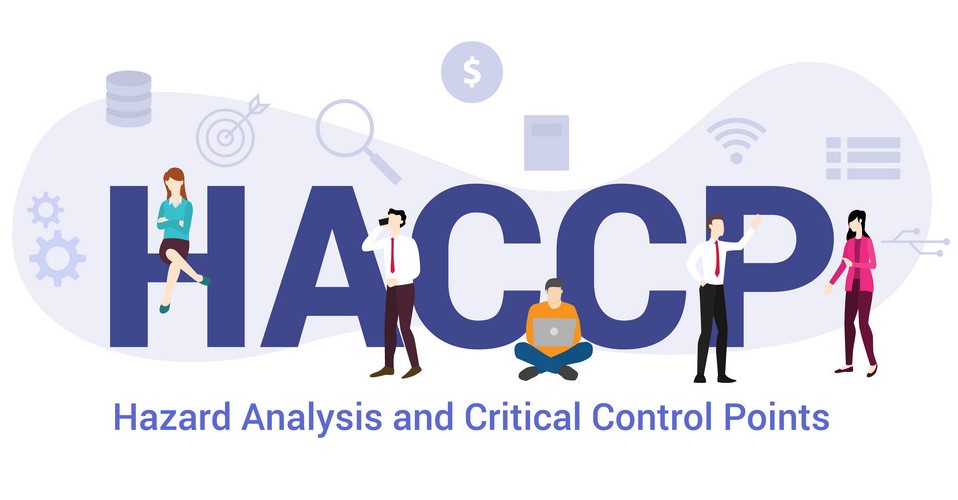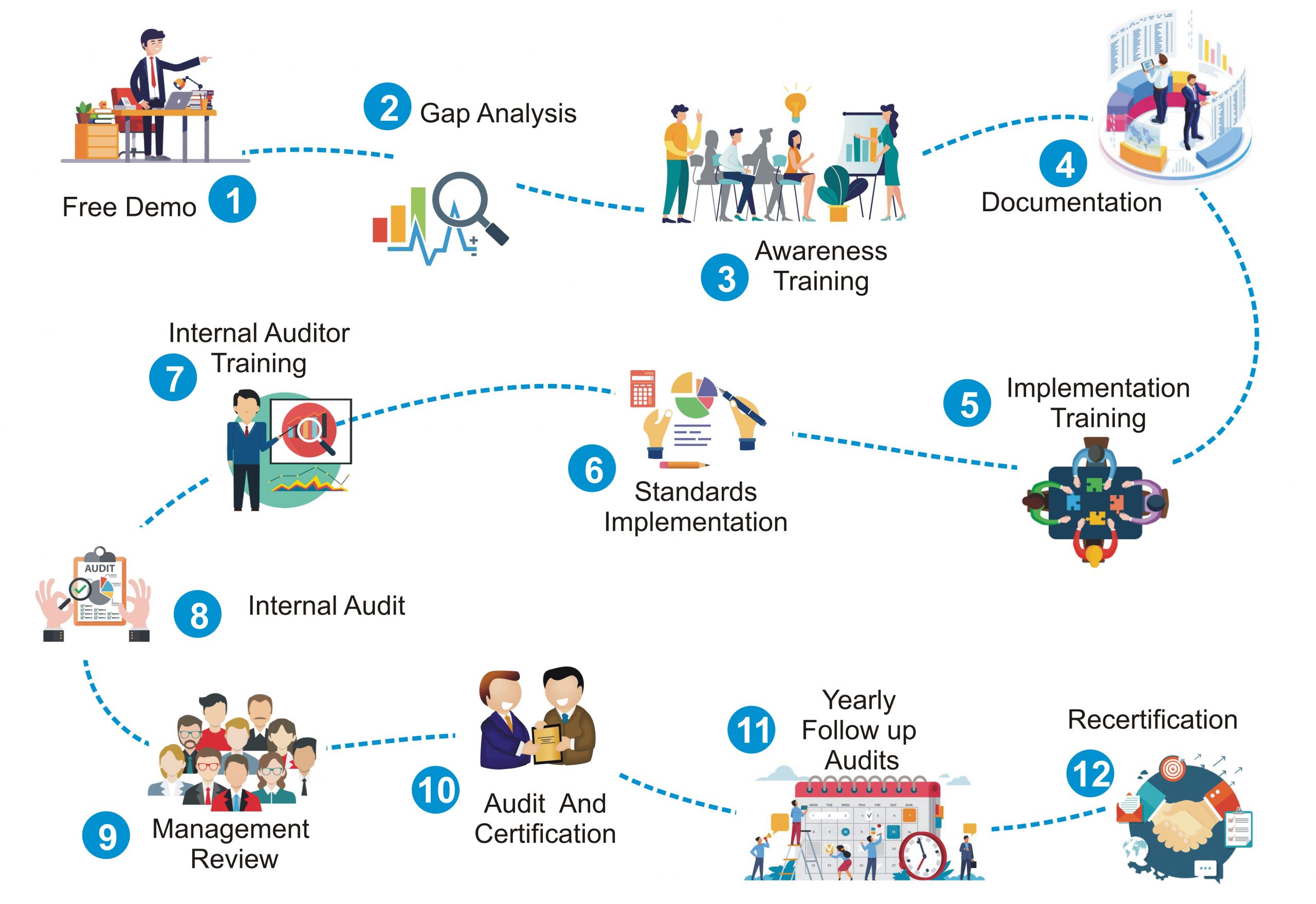How HACCP Evolved?
HACCP is described as "a food safety program developed ... for astronauts...; [it] focuses on preventing hazards that could cause food-borne illnesses by applying science-based controls, from raw material to finished products... Traditionally, industry and regulators have depended on spot-checks of manufacturing conditions and random sampling of final products to ensure safe food. This [past] approach, however, tends to be reactive, rather than preventive, and can be less efficient than the new system..."
What is HACCP-Certified?
HACCP is a management system in which food safety is addressed through the analysis and control of biological, chemical, and physical hazards from raw material production, procurement and handling, to manufacturing, distribution and consumption of the finished product.
The HACCP system can be used at all stages of a food chain, from food production and preparation processes including packaging, distribution, etc. The Food and Drug Administration (FDA) and the United States Department of Agriculture (USDA) say that their mandatory HACCP programs for juice and meat are an effective approach to food safety and protecting public health. Meat HACCP systems are regulated by the USDA, while seafood and juice are regulated by the FDA.


Quality Risk Management Tool
The use of HACCP is currently voluntary in other food industries. HACCP is believed to stem from of a production process monitoring used during World War II because traditional "end of the pipe" testing on artillery shell's firing mechanisms could not be performed, and a large percent of the artillery shells made at the time were either duds or misfiring.
HACCP itself was conceived in the 1960s when the US National Aeronautics and Space Administration (NASA) asked Pillsbury to design and manufacture the first foods for space flights. Since then, HACCP has been recognized internationally as a logical tool for adapting traditional inspection methods to a modern, science-based, food safety system. Based on risk-assessment, HACCP plans allow both industry and government to allocate their resources efficiently in establishing and auditing safe food production practices.
What are the benefits of HACCP?
• Implement internationally recognized food safety system
• Conveys a degree of confidence required by consumers, retailers and buyers within the food industry
• Provides buyers, consumers, government enforcement and trade agencies with justified assurance that control systems are in place to assure the safe production of food
• Align HACCP with ISO 22000 to improve food safety management systems
• Continually review and improve your system so it stays effective
• It is based on the internationally-recognized Codex Alimentarius standards and guidelines and other national standards
• Regular assessments help you to continually monitor your food safety system
• HACCP can add value to your entire supply chain with improved hazard controls, whatever its size or location.

Our implementation methodology
our end to end consulting includes following stages.

LET'S NUMBER TO SPEAK
SUBSCRIBE TO MY NEWSLETTER
Get access to my latest recipes by joining the weekly newsletter
